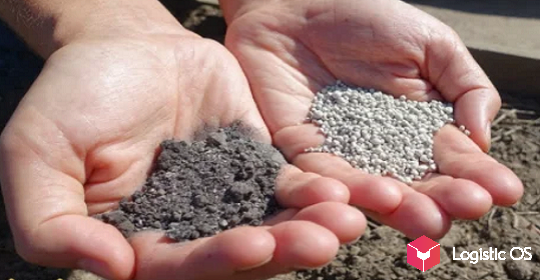According to the latest data, fertilizer producers have managed to fully cover the needs of Russian farmers for this type of product.
The Russian Ministry of Agriculture reports that farmers have purchased about 5.5 million tons of mineral fertilizers in anticipation of the new season.
This should be enough, taking into account the available reserves, to fully ensure the introduction of the required volume of fertilizer for all agricultural crops grown in the country.
At the same time, experts note that nitrogen fertilizers are the most popular among Russian farmers, accounting for about half of the total consumed volume.
Another 45% are phosphorus-containing fertilizers, and 5% are potassium fertilizers.
Analysts also shared the geographic structure of fertilizer consumption.
Approximately a third is purchased by enterprises in the Central Federal District, the same amount is purchased by the South and North Caucasus, and 15% is purchased by farmers in the Volga region.
Mineral fertilizer producers believe that they are doing everything possible to provide farmers with everything they need and contribute to the future harvest.
“Our industry has traditionally accomplished its main task of reliably and uninterruptedly supplying the priority domestic market with mineral fertilizers in advance,” notes Andrey Guryev, President of the Russian Association of Fertilizer Producers (RAPU).
He also stated that there is no fertilizer shortage in the country and no plans for it, which has become possible largely due to significant investments in the launch of new production facilities and the development of logistics.
It is noteworthy that 1.8 trillion rubles have been spent on this over the past 10 years, which is a very significant amount.
Moreover, several more projects worth 1.7 trillion rubles are currently under implementation. This means that in the near future, the capabilities of Russian fertilizer producers will grow even more, and since domestic consumption is unlikely to keep up with production volumes, there will be ample opportunities to expand exports.
At the same time, farmers are advised to purchase fertilizers for the new season in advance to avoid rush demand, as well as overloading logistics networks, since this can cause delays in deliveries and disrupt the fertilizer application schedule.
But if you do everything in advance, you can avoid such a development and get the maximum possible yield of crops.

